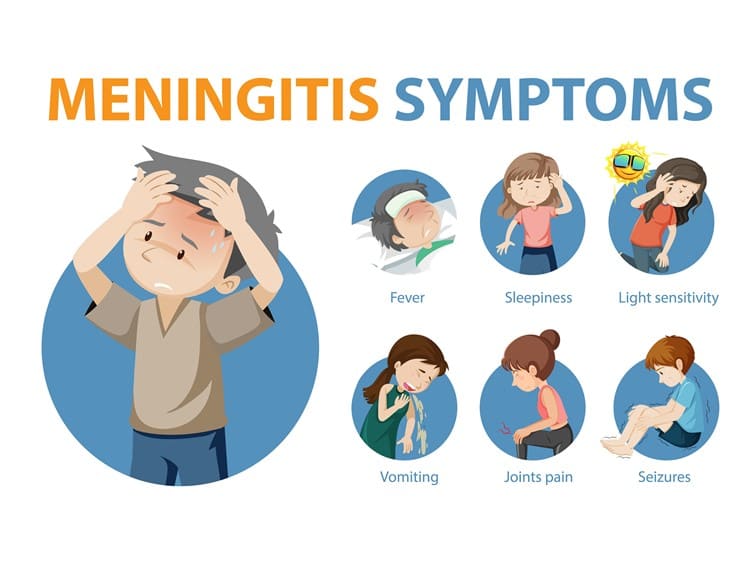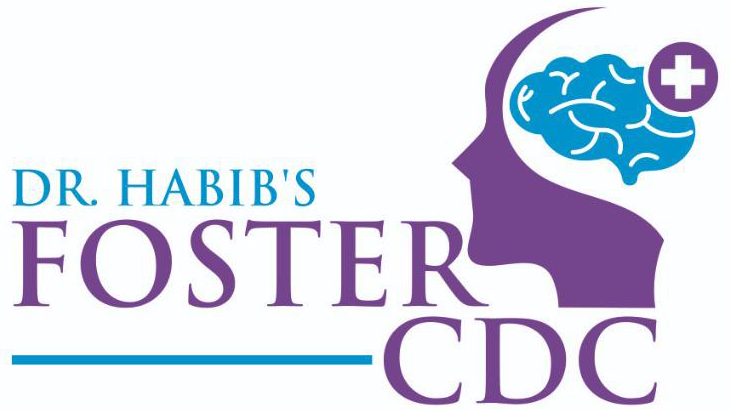Prevention of meningitis
Children are prone to get infected by meningitis that affects the delicate meninges of the brain. Meningitis is caused by bacteria, viruses, or fungi and spreads through close contact with the individual infected with the condition. Children who share their personal belongings and remain in close contact with those who have been infected with meningitis are at an increased risk of getting the infection and developing life-threatening meningitis.

Prevention of meningitis in a child
As a parent you are ought to be vigilant to ensure that your child is not in close contact with other children who have been infected with meningitis – the disease that causes inflammation in the spinal cord and brain can rapidly spread through classrooms and dormitories. Particularly children are susceptible as they can quickly pass on the germs by sharing their personal belongings like pens, pencils, towels, utensils, and glasses and by touching each other. But, whatever may be the case, as a parent you don’t have to worry as there are ways that can help prevent meningitis from spreading.
Wash Hands
prevention of meningitis: It is literally possible to prevent the majority of infectious and contagious diseases by proper handwashing and practicing it routinely. The germs – bacteria, viruses, or fungi that cause meningitis spread through the air and the items that an infected person has touched. If your child touches those items and gets his or her hands into the nose or mouth – the microbes make their way into the body from there. The best way possible to avoid this is to remind your child about washing hands regularly – particularly after they use the toilet, before they eat, and after they have been around with other children.
Don’t Share
As a parent you might have taught your child when he or she was a very young child that they should share their items with their fellow beings – but, as far as meningitis and its spread are concerned, sharing personal belongings & items is very risky because the infection spreads by sharing, utensils, spoons, glasses, forks, lipsticks and toothbrushes with somebody who is infected. Therefore, it is a better idea to inform your child that he or she should not share their personal items even if someone urgently wants those.
Don’t Get Too Close
Getting close to someone who is sick can land your child in trouble because meningitis causing bacteria or viruses to spread through kissing, coughing, and even sneezing. The microbes inhabit the throat and mouth of the infected person. Therefore, tell your child not to get in close contact with the other child who has been infected with meningitis.
Keep Hands Away From the Face
The best way to prevent the microbes from entering the nose and mouth is to avoid touching the eyes, nose, and mouth because they are the gateway for the bacteria and viruses that cause severe infections like meningitis. Even cold and flu germs spread if the contaminated hands touch eyes, mouth, or nose – therefore, inform your child, educate them and tell them to avoid putting hands in the mouth, biting nails, rubbing eyes, and picking the nose.
Clean Up
Personal hygiene and cleanliness keep several diseases at bay; therefore, inform children about the benefits of cleanliness and good habits and how they help prevent several life-threatening diseases and keep them safe from falling sick. Children can pick up the germs by touching contaminated surfaces like toilet doors, doorknobs, computer keyboards and mouse, pens, and pencils as meningitis germs can survive on such surfaces for some time. Cleaning such surfaces with a disinfectant, spraying disinfectant, or wiping such surfaces with a disinfectant can help kill the microbes capable of spreading infections.
Get Vaccinated
Meningitis prevention vaccine: Vaccination is the best way to prevent bacterial meningitis. Vaccines are of different types and one type of meningococcal conjugate vaccine is given to children at age 11 or 12. To ensure adequate protection for the growing children, as the protection gradually becomes feeble over time, a booster dose or shot is given at age 16 – which would cover the teen through college.
Prevention of meningitis: It is better to approach and consult your pediatric neurologist about the meningococcal B vaccine and ask him or her about additional protection for your child against meningitis – which your child may get around 16 to 18 years.

